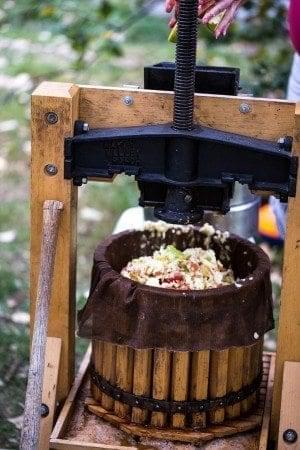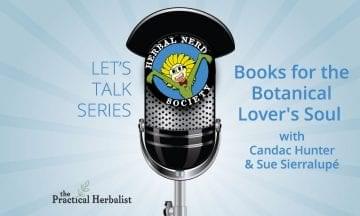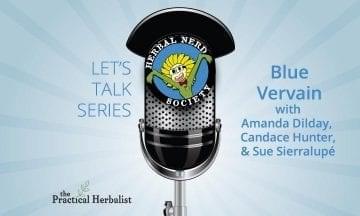Episode XV
The month after what Paul had taken to calling the Great Apple Massacre was rough. We fought…a lot.
“We’re cut and bruised. Harvey’s limping. And you want to go back there?” Paul asked, more than once.
“Yes, we earned that apple cider. We turn it into vinegar and we’ve got some pretty important medicine. Plus, Red promised that if we pressed and came back next spring he’d have a gallon or so of apple jack set aside for us. Hard stuff like that’s worth gold in trade. We could even get that sharpening stone you’ve been on about. A real one. Sarge McConnell at Fort 162 said he’s got one he’ll trade for the right stuff. I know he’d love a nip of something good and hard.”
“You’re crazy. We don’t need apple cider to distill something good enough for the Sarge. I don’t want to risk another mob attack of second gens, or even first gens for that matter,” Paul said.
“Apple Jack’s the closest we can come without a still and moonshining knowledge, and we need to help press cider to get it. I haven’t got much else Sarge’d want that bad. Come on, Paul, it’s not gonna be that bad,” I said.
“Absolutely not,” he replied.
“Then I’m going without you.” I said.
“It’s your funeral,” He replied.
“Darn it, Paul. You’ve got to see reason here,” I said.
“Absolutely not,” he replied.
We went around and around like that at least five times a day. Paul was infuriating. I was stubborn. Harvey, well, he just ran off every time we started bickering. Who could blame him? We were an angry pair.
The day for setting off for Wild Acres Sanctuary finally arrived. I was up early to make a nip of oatmeal seasoned with rosehips and the last bit of honey I’d collected in late summer from an old beekeeper’s hive we’d found plus a cup of my latest coffee-substitute attempt, fire roasted dandelion and chicory root. It was an extravagant breakfast, but I was hoping to butter Paul up, maybe convince him to come along when I set out.
“Enjoy,” I said as I handed him his meal. “It’s gonna be a long day, I reckon.”
“I reckon it is,” he said as he accepted my offering. I sat across the fire from him sipping my brew. Harvey lay by my side, gnawing on a bone he’d dug up somewhere. I stroked his side and watched Paul carefully.
When he finished off the last of his oats and set his bowl aside, he looked at me straight on.
“You’re going, aren’t you?” he asked.
“Yes, I was planning on it,” I said. He had that lawyer sound to his voice that always made me nervous.
“You just want the apple jack, or is there more to it than that?”
“I want the apple jack, for sure, but the cider alone would be worth the risk. Cider vinegar’s good medicine and it’ll keep a long while. We’ll get a few gallons, most likely. Red said he’d even give us a couple of buckets if we need them. I haven’t tasted a good cider in so long, I’d almost die for it right now,” I said.
Paul shook his head.
“I’ll go only if you trade for extra cider, no apple jack, and you promise me we won’t do this again for at least five years. At least, maybe more,” Paul said.
“But apple jack’s the only way we can get the sharpener you want,” I said.
“The only way, unless we distill some of the cider,” Paul said. He downed the last of his brew, then got up as if to say the discussion was over. For once, I didn’t argue.
We packed up and set off on the three day’s hike to Wild Acres Sanctuary. It was an uneventful hike. As we neared the Sanctuary on the third day, the stench of rotting corpses became almost overwhelming. We wrapped bandannas soaked in Apocalyptic Bodywash around our faces in an attempt to drown out the stink. We saw a handful of first gen z’s, but honestly, it was quiet.
“It’s good to see you,” Red said when we arrived. “I didn’t think you’d come back after the bloodbath we had gathering this year.”
“I’m just relieved the z’s aren’t out in full-force again. I had a hard enough time talking Paul into coming back for the pressing,” I said.
Red accepted our compromise, five gallons of cider and no apple jack plus shelter for the night and a place to cook up our super, for two days work. We started in straight away.
Red’s system was surprisingly efficient and ecological. He’d rigged up three old-fashioned presses. For the hundreds of pounds of apples we had to press, they seemed mighty small. They didn’t have a motorized cutting machine like the one my Grandpa’d invested in when I was a teen, but they had so many people lined up at the tables cutting apples those three presses had a hard time keeping up. We were assigned what I called Pulp Duty. After the apple washers had cleaned the apples, the cutting tables cored and sliced them down.
Then, the cores went into Red’s community hog and chicken pens and the apples when into the press. After they’d been drained of all the juices the press operators could squeeze out, the pulp was dumped into buckets and carried to the Pulp area where Paul and I worked with a small team spreading it on cleaned fine mesh window screens and stacking them in the community smoke house. They kept the smoking to a minimum, mainly focusing on keeping enough heat on the fire to dry the pulp into what would later become essentially fruit roll-ups. Red had several of the community young ‘uns manning the three hand-crank fans he’d set up to keep the air moving. It was a community effort right down to the singing, mostly old Loverboy and Aerosmith songs, that made the work seem easier and helped the time pass.
“It’s an amazing system you’ve got here,” I said to Hal, who’d joined us on Pulp Duty late in the afternoon on the second day after the demand for washers had subsided.
“Yeah, amazingly dangerous,” Hal said.
“I don’t see the danger,” I said as I spread another load of pulp across the screen I was working on.
“Listen,” Hal said. He scowled, lifted my empty bucket, and walked off to get more pulp.
Paul and I looked at each other and shrugged.
“Maybe he’s still raw over the massacre. They lost a lot of good people,” Paul said.
“Maybe,” I said. We got back to work, but Hal’s statement rolled around in my head the whole while. What could be so dangerous about apple pressing, especially when nothing was motorized? I decided I’d check to see if Hal had all his fingers the next time he dropped off a pulp bucket. Maybe he’d had an accident at the cutting table at some point.
The afternoon wore on with the hum of apple washing, cutting, pressing, and rounds of work songs filling the air. There were no mishaps, so far as we could tell, unless you count Harvey vomiting up a mess of half-chewed apple cores at my feet late in the afternoon. We didn’t see Hal again, either.
Red stopped by as the pressing was winding down.
“We’re almost done. We’re down a few more than last year, and I think we may have managed to squeeze out more gallons despite that,” Red said.
“Yeah,” Paul said as he slathered his screen with pulp. “We lost Hal earlier this afternoon. He’s not the only one, either. It looks like the cutting tables are down by half at least. Are your people just getting tired or something?”
“Nah, they’re working. You all might want to plan to stay on another night. It’ll be after dark by the time we’re done,” Red said.
“I think we’ll head out. Moon’s full and truth be told, I’m just not used to sleeping inside a house any more. It gives me the creeps,” I said.
“You might want to re-think that. Listen and let me know,” Red said. He shrugged and carried Paul’s full pulp screen off.
“Listen?” I asked. I looked at Paul. His puzzled expression drained of color and became one of fear and anger.
“Listen,” he said.
Then, I heard it. Moaning in the distance cut with intermittent hacking sounds.
“Oh my God,” I said. The grounds surrounding Red’s Sanctuary were teaming with Zs.
For three days, we took turns hacking at Zs who’d managed to climb the Wild Acres Sanctuary walls and cowering in the sanctuary’s heart singing with the rest of the crowd to drown out the sound of the fight. The singing got more frenzied and loud as the work of pressing and cleaning up afterward wound down. It kept gossip and fighting down, mostly. Some, including a couple of really vocal folk, didn’t think the annual pressing was worth the risks. We learned that Red’s apple pressing drew hordes of Zs every year. No one knew why. Many surmised it was the scent of the apples being cut, although neither Paul nor I had known Zs to be attracted to the scent of apples.
We didn’t run into Hal again. I heard a rumor he may have been one of the three who’d been pulled over the wall and lost to the virus. I kept my head down and helped where I could. I got to treat a few deep cuts and one broken bone, a lot of bruises and muscle strain. Red added a bag of apple pulp roll-ups to our load when the grounds were finally clear enough for us to go.
“You were a great help, here,” Red said. “I hope we’ll see you again next year.”
“Don’t count on it,” Paul and I said in unison. Harvey barked one loud, clear “roop,” as if to underscore the finality of our decision. We didn’t talk much about the experience as we hiked home. We didn’t need to. Five gallons of cider and a bag of apple pulp roll-ups wasn’t worth the risk we’d taken. Even I could see it clear as day.
May You Be Well,
Zombie Hunter C.






